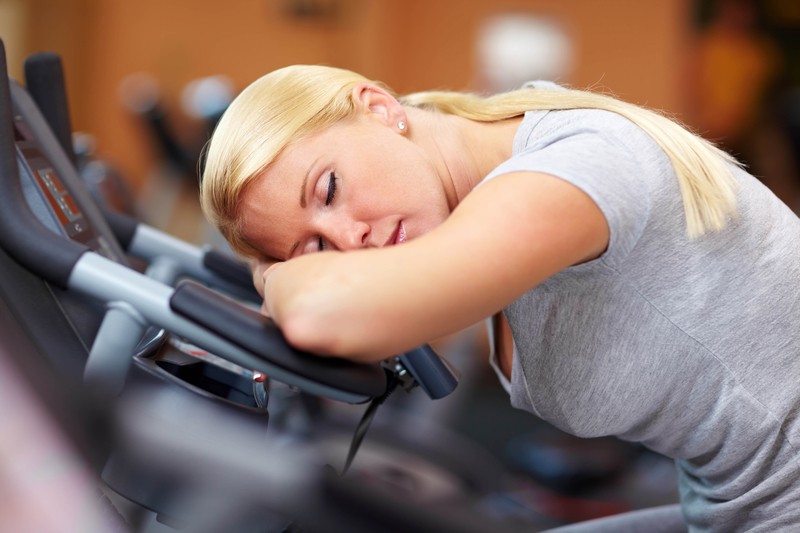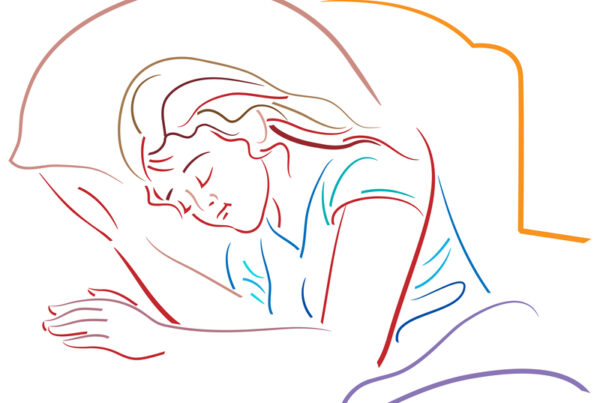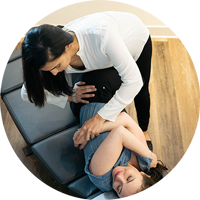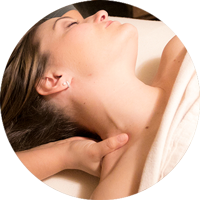The fall months may bring beautiful leaves, a break in the heat and fun activities surrounded by candy and pumpkins, but the changing weather also brings more rain and gloomy days. Our bodies naturally shift toward sunlight, and with fewer days in the sun we can start to feel depressed, restless and more tired than ever before. Since fall comes every year, there are some good tips to predict the change and to combat fall fatigue before the first yawn breaks out.
At our clinics we look at several natural, evidence-based options to treat fatigue by finding the root cause of fatigue and seeking modifications in lifestyle.
Functional Medicine
Using a Functional Medicine approach, we look at the underlying cause of fatigue, which may include testing for internal deficiencies. All treatment plans vary per individual but many may include a change in diet and supplements that offer a diet rich in B-vitamins, iron, essential fats, and antioxidants. Targeting healthy eating habits can optimize digestion and ensure a balance of healthy gut bacteria. Emerging studies have shown a clear connection between a healthy gut microbiome and improved sleep.
Sleepless nights are more common in the fall and winter months due to our internal clocks. More darkness equals our clocks feeling like we should go to bed. Sunless days and earlier nights also can lead to depression, or the winter blues. Even though we want to sleep more when we’re feeling depressed, we end up feeling more tired. Lack of Vitamin D, which can happen when we don’t get enough sunlight, can result in tiredness, aches, pains, and other health concerns. A Functional Medicine professional will be able check your levels with a Vitamin D blood test and then subscribe an appropriate treatment plan based on your results.
Acupuncture
While Functional Medicine helps to establish healthy sleeping habits, our patients seeking help with energy and sleep disorders also find natural relief with acupuncture. According to a study by San Gerardo Hospital in Italy, more 60 percent of patients with sleep disorders reported improvements within two weeks. In general, improved sleep is a common side-effect of acupuncture sessions.
In Traditional Chinese Medicine, insomnia is seen as a symptom and not a disease. This is why acupuncturists are able to look at fatigue with an integrative approach that is individualized for every patient.
Chiropractic Physical Medicine
People with chronic pain or other chronic diseases may have more severe insomnia or restless nights. Obviously if you’ve had a bad night’s sleep, you are going to feel more fatigued the next day.
Regular exercise not only increases muscle mass and strength, but it also increases blood circulation and flexibility, which reduces pain and helps improve sleep. In general, exercise can reduce the amount of time it takes to fall asleep and can increase the length of sleep. Exercise also releases our lovely endorphins, chemicals that make us feel happier and more energetic.
If you are having difficulty sleeping or moving due to chronic pain, Chiropractic care can help you manage and prevent pain with spinal manipulation, manual therapies and therapeutic exercise. At Aligned Modern Health, we work to alleviate pain but also treat the underlying cause to help prevent further pain.
A Plan of Action for Combating Fall Fatigue
Keeping a daily diary of how you feel and speaking to your doctor about it may be a way to combat fatigue before it gets you. By evaluating your sleep patterns and daily levels of tiredness, you can work with a doctor to create a treatment plan that’s right for you. Maintaining a regular sleep schedule by going to bed at the same time and trying to wake up at the same time also can help regulate your body’s sleep schedule.
And, make sure your body gets the proper “rest” even while awake. Meditate, try a yoga class or take a warm bath to try to get some relaxation time in each day.
It’s important to note the difference between being tired and having full on fatigue. As the Arthritis Foundation explains, fatigue can be described as “severe weariness and overwhelming exhaustion that doesn’t get better with sleep.”
If you sleep all night and are still tired, you may be suffering from chronic fatigue or weather-related fatigue. To learn more about addressing fall fatigue or to speak with one of our top-rated Chicago health experts, contact us for a free consultation!









